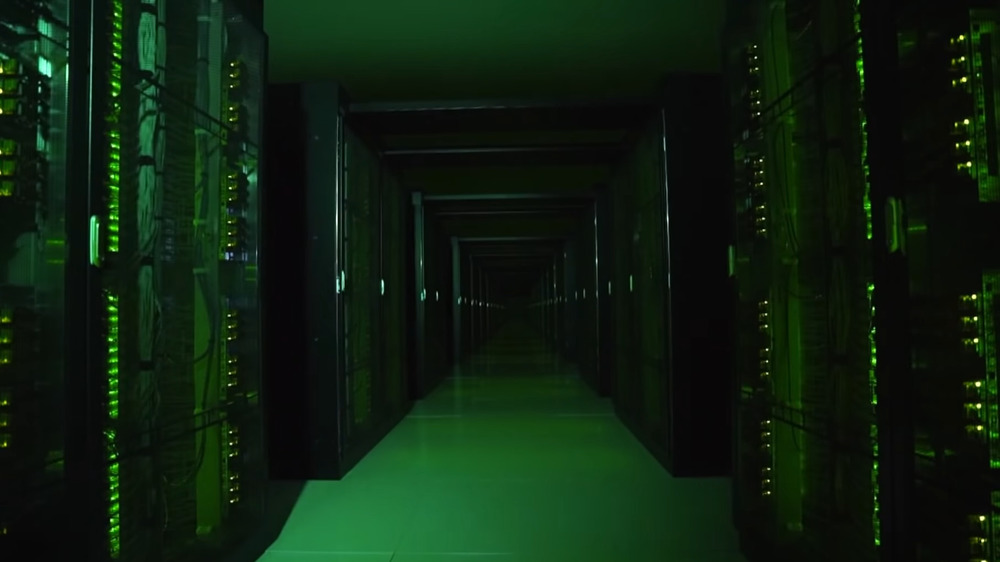This Is The Most Powerful Computer In The World
With one Mac Pro configuration now costing $52,599 (yes, really), as engadget reports, you'd have to assume it's a pretty mighty machine. And it is. But when it comes time to name the world's most powerful, there's nothing you (or anyone else) can buy in a store that can even compete with the supercomputers. As Builtin explains, these behemoths can be made up of dozens (if not hundreds) of refrigerator-sized cabinets and can weigh several hundred tons. They sometimes even require their own water-cooling systems to prevent overheating. Just like when you're working hard, these things tend to heat up quickly since they're doing massive amounts of calculations and running countless, complex simulations, says the World Economic Forum.
Typically, relates How Stuff Works, supercomputers are used in situations that require vector arithmetic, or the ability to perform multiple operations simultaneously and make predictions about various possible outcomes. Some of the most common applications include everything from nuclear weapons security and weather forecasting to medical research and — believe it or not – World of Warcraft.
This is it — the world's most powerful computer
It's a tricky thing, being a supercomputer. One minute, you're on top of the world (figuratively, of course; literally, you're probably in a climate-controlled room) and the next, you've been unseated for the title of top computer. That's just the way it goes, as governments and companies around the world race to produce whichever most-powerful machine comes next.
Currently, the title belongs to Japan's Fugaku (named after Mt. Fuji. Cute). Like all supercomputers, this one is ranked on a specific set of criteria. Fugaku came out on top — not just in speed, but also "computational methods for industrial use, artificial intelligence applications and big data analytics," according to Kyodo News.
How fast is it? Very: 415-quadrillion-computations-per-second fast, which is reportedly 2.8 times faster than its next-closest rival, located at the U.S. Oak Ridge National Laboratory. Before you fear the mighty powers of your computer overlords too much, Fugaku is also doing mankind a solid by modeling out countless coronavirus aerosol and droplet scenarios (did you know that (according to CBS News) singing in German or Italian generates "twice as many particles per minute" as Japanese? Now you do). In its spare time, Fugaku is also monitoring tsunamis, reports HPC Wire. Apparently, it likes to stay busy.
Fugaku has gotten a lot done since its launch in June of 2020. How long will its reign atop Mt. Supercomputer last? We don't know, but we bet Fugaku could run the numbers.

